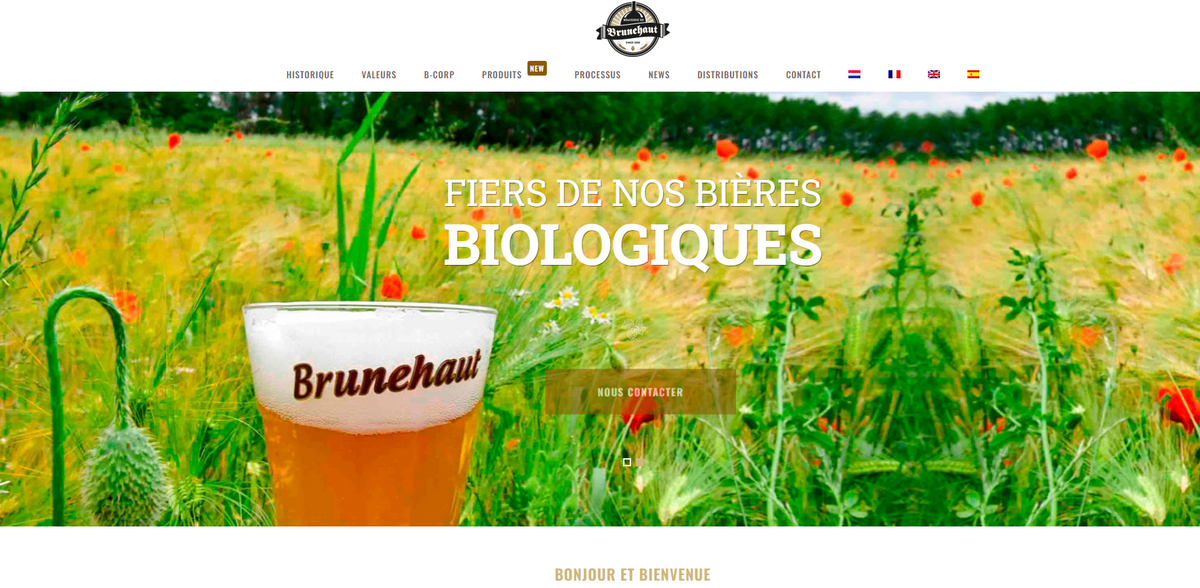What is Brunehaut Brewery?
Brunehaut Brewery, founded in 1890, is an artisanal establishment that masterfully weaves tradition with modern innovation. The brewing hall notably moved 2 km from its original location during its centenary—yet it still relies on the same aquifer to ensure that the quality of the water remains true to its heritage. Reopened in 2007, the brewery commenced with 1,000 hectoliters of production, a figure that has more than quintupled over time. Rooted in a rich history and steadfast values, this brewery continues to balance its artisanal legacy with sustainable practices, creating beers that speak both of history and of a commitment to the future…
Main Benefits and Key Figures
The project distinguishes itself through numerous strengths and impressive figures, including:
- Established in 1890, merging time-honored craftsmanship with modern techniques.
- Reopened in 2007 with an initial production of 1,000 hectoliters—now exceeding 6,000 hectoliters annually.
- 100% organic production, utilizing locally sourced organic barley to ensure a fair income for farmers.
- Certified as the only B Corp brewery in the European Community, alongside labels such as Organic, Nature & Progress and Fair Producer.
- Innovative environmental measures, including 350 solar panels that produce up to 75% of the brewery’s electricity.
- Pioneer in using recyclable barrels for export and implementing a robust water consumption reduction program.
- A diverse range of beers that includes gluten-free options celebrated as some of the best in the world.
Sustainability Through Organic and Local Practices
Brunehaut Brewery’s commitment to sustainability is evident in every aspect of its operation. Every ingredient comes from organic sources, and local producers supply the organic barley, ensuring that each cereal contributes not only to a superior beer but also supports local economies. The brewery’s practices stand as a model of environmental and social responsibility—helping to reduce ecological footprints while fostering relationships with local farmers. This commitment underpins an approach that places respect for society, employees, customers, suppliers, and the planet at the heart of every process.
The Brewing Process
The brewing journey is a fascinating, step-by-step process that begins with the careful selection of 100% natural ingredients: water, malt, and hops. Barley malt—and other cereals—are first crushed into a coarse flour. Then, with water and precise heat adjustments, the flour transforms into a hearty “mash,” where enzymes work to convert starch into sugar. Next, the mash is filtered into two distinct components: the liquid wort and the spent grains. The wort continues its journey in a vigorous boiling stage, where hops and spices are introduced to infuse rich flavors. Fermentation follows, lasting 10 days as yeast transforms the sugars into alcohol, carbon dioxide, and essential esters. The beer is then matured at 0°C for a minimum of ten days, which clarifies and refines the brew. Finally, after light filtration, the beer is bottled in various sizes and undergoes natural refermentation in the bottle—reminiscent of the traditional champagne method. It’s an intricate process that results in a beer of unparalleled quality…
Diverse Beer Range and Artisanal Quality
The range of beers offered reflects a diverse and thoughtful approach to brewing. Options include Blonde Bio, Triple Bio, Amber Bio, White Bio, and Saison Bio, along with a unique Free Bio selection for those seeking gluten-free beers. Additionally, the Abbey Beers collection—featuring Brune Bio, Blonde Bio, Triple Bio, and Noel Bio—stands out, with the official organic Belgian abbey beer (Abbey of St. Martin) being a testament to exceptional quality. The Kopstoot range, including Kopstoot Genever and Kopstoot Cherry Kirsch, offers a creative twist. Every beer is refermented in the bottle, allowing natural foam and bubbles to develop, making each sip a genuine expression of artisanal craftsmanship and a nod to traditional brewing techniques.
Project Impact on Society and Environment
- SDG 7: Affordable and Clean Energy – The 350 solar panels produce up to 75% of the brewery’s electricity, championing renewable energy.
- SDG 12: Responsible Consumption and Production – 100% organic production and sustainable sourcing practices underline a commitment to ecological responsibility.
- SDG 13: Climate Action – Eco-friendly measures such as water consumption reduction and recyclable export barrels contribute to combating climate change.
- SDG 8: Decent Work and Economic Growth – Supporting local organic barley producers ensures fair income and promotes local economic resilience.
- SDG 15: Life on Land – Sustainable agricultural practices safeguard local ecosystems while maintaining biodiversity.
The Future of Artisanal Organic Brewing
Looking forward, Brunehaut Brewery remains dedicated to an ambitious vision: to produce the best artisanal organic and gluten-free beers while never compromising on quality. Continuous investments in sustainability and the well-being of employees illustrate a long-term commitment to fostering a positive impact on both society and the environment. The mission is clear—embed values of sustainability, honor historical traditions, and encourage a circular, respectful relationship with nature. As the brewery evolves, the aim is to nurture an ever-growing synthesis of innovation and artisanal know-how, ensuring that every generation can relish the taste of responsibly crafted beer. It’s a journey marked by gradual improvements and big dreams, where economic means serve as a vehicle for social and environmental progress… an inspiring future built one brew at a time.


















